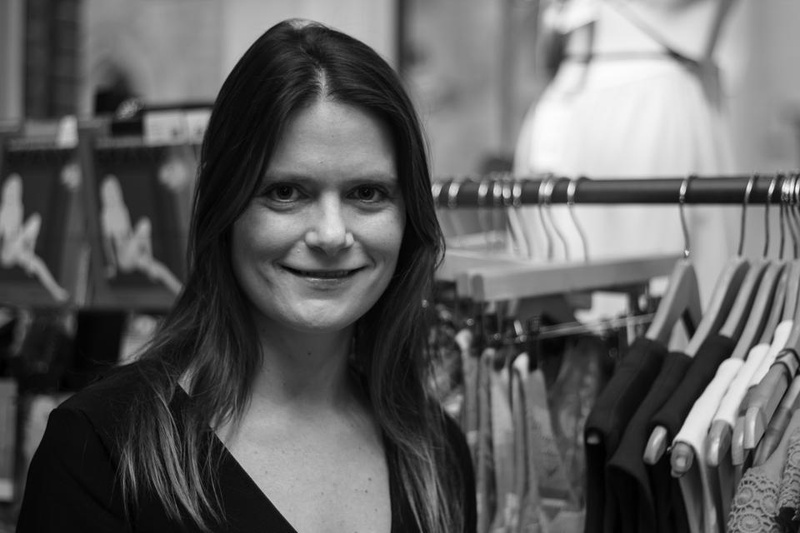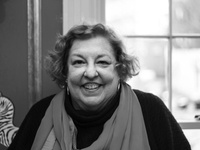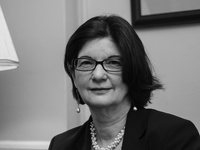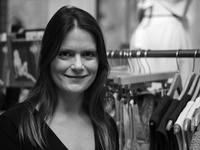Three decades ago, when customers entered what is now UpStairs on the Square, some assumed that the woman who greeted them was only there to take reservations. But in fact, Mary-Catherine Deibel welcomed the guests to her restaurant.
In 1982, Deibel, as the co-owner and co-founder of the longstanding Harvard Square restaurant, represented an exception to the male-dominated business community.
This month, Deibel’s name along with 116 others was published in the Harvard Square Business Association’s annual list of women business owners, which is released each March in honor of Women’s History Month.
HSBA Executive Director Denise A. Jillson estimates that about 10 percent of Harvard Square businesses are currently owned or directed by women.
These women, who run eclectic shops and outlets scattered throughout the Square, have carved out space in a historically male-dominated profession and community. Today, in an environment in which they are still a minority, they have turned to entrepreneurship and developed partnerships to survive and thrive.
BREAKING TRADITION
Each day at work, Jillson revisits Harvard Square’s male-dominated roots. Her desk faces a photo on the wall of a 1941 golf outing of the Square’s businessmen. While the picture could suggest an enduring patriarchal legacy, to Jillson, it serves as a reminder of the great strides taken by women in a profession previously out of their reach.
“There are definitely more businesswomen now in the Square than when I came here in the ’80s,” said Paul J. MacDonald, owner of the iconic Leavitt & Peirce tobacco shop that has stood witness to the evolving demographic of Harvard Square for more than a century.
The growing number of female entrepreneurs in recent decades coincides with the HSBA’s historical shift toward welcoming women into the Association. The HSBA, founded in 1910 as the Harvard Square Business Men’s Association, originally barred women from becoming members.
Only in the early 1970s amid the increased pressure for women’s rights did the Association abandon the “Men’s” qualifier and welcome women leaders.
The HSBA itself currently reflects the increased gender balance among Harvard Square business owners. Its board has exclusively been led by a woman since the first executive director was hired in the 1980s.
Today’s HSBA continues to embrace the young businesswomen who are changing the face of Harvard Square. Eight of the 18 current board members are women, several of whom are young entrepreneurs.
“When [women] arrive on the scene, they immediately like to get involved in the community,” Jillson said. “These women are young, sitting on the board, and really making an impact on the Square.”
RIGHT JOB, RIGHT PLACE
MacDonald emphasized the importance of bringing entrepreneurs and small businesses to Harvard Square.
Read more in News
Research Program in Arts and Humanities To Launch This SummerRecommended Articles
-
 Bob Slate, Stationer Seeks Buyer
Bob Slate, Stationer Seeks Buyer -
 Oktoberfest Lite
Oktoberfest Lite -
Harvard Square Theater Purchased for $6.5 Million by DeveloperThe AMC Harvard Square Theater, which closed its doors on July 8, has been purchased by Cambridge real estate firm Carpenter & Company, Inc. for $6.5 million.
-
 Square Eateries Go Gluten-Free
Square Eateries Go Gluten-Free -
 Let me Entertain You
Let me Entertain You -
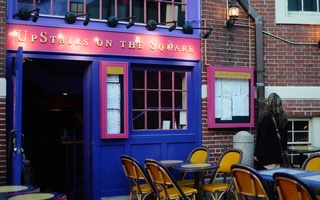 UpStairs on the Square To Close After 31 Years
UpStairs on the Square To Close After 31 Years









